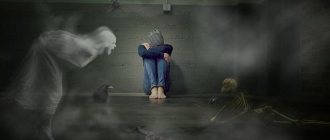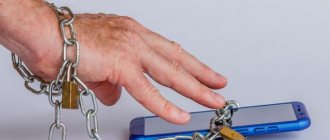Causes of fainting during VSD
There are many different diseases that can cause semi-fainting and fainting.
But dystonics, for the most part, are physiologically quite healthy people. Nevertheless, it is necessary to undergo diagnostics and exclude diseases that cause similar symptoms. The information given here applies only to cases where no serious organic causes of fainting have been found. And the only diagnosis on the patient’s card is vegetative-vascular dystonia. In such cases, the cause of the most unpleasant condition during VSD may be:
- Lack of oxygen. Neurotic people often experience increased anxiety. This, in turn, causes muscle tension. The fossilized muscles survive the vessels through which the blood carries oxygen. When there is insufficient blood flow, the brain is the first to suffer from lack of oxygen. After all, in a vertical position, the least amount of blood flows to it. To protect itself, it simply goes into “energy saving” mode and turns off for a while. In fact, such fainting during VSD is nothing more than a protective reaction of the body.
- Decrease in pressure (hypotonic crisis). Unstable blood pressure is a typical symptom of dystonia. Sometimes its jumps are so sharp and fast that the vessels do not have time to rebuild. When the pressure in them drops, they do not compress properly, which also leads to insufficient nutrition to the brain.
- Sluggish, dilated vessels. This factor also often accompanies people with VSD. The vessels lose their tone, become “flabby” and blood flows through them slowly. As a result, the brain, which does not have enough oxygen, suffers again.
- Hyperventilation of the lungs. It usually occurs during panic attacks. The unfortunate person begins to breathe frequently, but superficially. The body does not have time to become saturated with oxygen and the person loses consciousness.
Many feel the pre-fainting state in the same way - the eyes begin to darken, a ringing is heard in the ears, nausea may set in, coordination of movements is lost, and the body becomes weak. Usually all this happens when a person is in an upright position. However, it does not always end in complete fainting. If the victim manages to sit down in time or someone waves at him or throws cold water on him, he may not pass out completely. In any case, this condition is extremely dreary and unpleasant.
Fear of fainting: the reason
Panic attacks are a special condition of the body in which the functioning of its systems suddenly changes. These disorders do not cause madness, heart attacks or other pathological conditions. However, many people during an attack are afraid of losing consciousness and fainting.
Fainting is a consequence of a rapid drop in blood pressure; it allows a person to take a horizontal position for even distribution of blood throughout the organs. Numerous studies confirm that fainting during a panic attack is unlikely. This circumstance is due to the fact that during an attack, blood pressure rises, its drop, necessary for fainting, does not occur.
The mechanism of fear of fainting is the entry of a large amount of adrenaline into the blood. This phenomenon causes an increase in blood pressure and an increase in heart rate; it is caused by the body’s defense mechanisms. During an attack, a person may experience symptoms that often occur before fainting:
- unsteady gait or posture;
- a feeling of unreality of what is happening;
- blurred vision;
- chest pain;
- dizziness.
People susceptible to panic attacks often experience other fears associated with ridicule or condemnation of others, or a ridiculous appearance. Patients worry about what others will think of them and how they will react to this phenomenon.
When turning to specialists with the question of whether it is possible to lose consciousness during an attack, they subconsciously try to calm themselves down. Experienced psychiatrists and psychotherapists, when working with patients, find out what fear actually exists: being robbed, appearing crazy or an alcoholic.
How to lose consciousness for a few minutes
Real loss of consciousness is caused by simple manipulations. The downside is harm and health hazard.
It will not be possible to accurately adjust the time of fall. You can create conditions for the body to weaken.
People in good health will have to use one of the above techniques in addition:
- Starvation.
- Depressant.
- Dehydration.
- Severe stress.
- Clothing that tightly pinches the chest and abdomen, preventing normal breathing.
- Hit to the head.
These methods are effective, but harmful. A blow to the head is mentioned because it can cause loss of consciousness. To use it is to risk your life.
The blow can cause brain bleeding. The person will forever remain disabled, immobilized, blind, or die. One blow to a sensitive spot and death is guaranteed.
Fasting can weaken the body, but along with a faint state, be prepared for stomach problems: ulcers, gastritis, indigestion, colitis. Such experiments leave consequences.
Tight clothing is an option that works on the principle of breathing manipulation. Lack of oxygen will contribute to fainting. Make sure there are people nearby who will provide first aid.
Types of stage fright and public speaking: what they are called and ways to overcome them
Experts identify several types of this phobia. They are similar in symptoms, but differ in the sources of fear itself. To understand how to deal with a problem, you need to determine the specific form in which it manifests itself. Sometimes this requires the help of a professional.
- Peiraphobia is fear of being in front of an audience.
- Verbophobia is anxiety before speaking.
- Lalophobia – fear of impaired diction, stuttering.
Why are people afraid to speak?
To understand how to overcome uncertainty before public speaking and boldly interact with the public, it is necessary to determine the causes of fear; there can be a lot of them, starting from genetic predisposition. The attitude of parents towards public events and their behavior can be laid down in the child at the genetic level or instilled in the process of upbringing. Children always imitate adults, adopt their manners and habits, so it is very easy to provoke the emergence of a phobia. Common factors contributing to the appearance of glossophobia are:
- Childhood experiences. For example, psychological discomfort caused by ridicule from peers during a performance.
- Manifestation of neurotic diseases. Thus, a lack of control over one’s emotional state may later result in a fear of speaking in public, in front of an audience.
- Complexes associated with one’s own appearance or speech. Self-criticism is both a driver and a brake. Complexity prevents you from objectively assessing the situation.
- Upbringing. Some parents forbid their children to lead a public lifestyle or limit their personal space, which is why going out to the audience turns into a painful departure from their comfort zone.
- Constant criticism from adults. Excessive criticism creates in a child self-doubt and a feeling of uselessness.
- Shyness. One of the most common reasons.
- Inability to work with criticism, unpreparedness for it.
Before the start of the event, a glossophobe may experience the following body reactions to stress:
Psychologist Daria Milai
Make an appointment
- redness or paleness of the skin;
- nervousness is reflected in gestures;
- intestinal disorder;
- uncontrollable laughter;
- excessive sweating;
- dry mouth;
- nausea;
- increased heart rate;
- tremors of the vocal cords;
- muscle spasms;
- semi-fainting state;
- changes in facial expressions;
- fever;
- increased blood pressure;
- "lump in the throat;
- problems with speech, voice;
- numbness of the limbs.
Consequences of glossophobia
A phobia such as the fear of public speaking in front of an audience can become a serious problem and lead to:
- low performance in an educational institution;
- excessive isolation, shyness;
- inability to achieve heights in the professional field;
- difficulties getting a job.
How to overcome
If the problem is really critical, it is better to seek help and advice from a professional. A qualified psychologist will help you understand the sources of fear and eliminate provocateurs. It will also be useful to sign up for my personal consultation, during which you will be able to come to an agreement with yourself and find internal resources to combat the phobia.
Face-to-face consultation
What are the features and advantages of face-to-face consultation?
Skype consultation
What are the features and benefits of Skype consultations?
Techniques for replaying fears
To overcome the fear of losing consciousness, it must be admitted into the consciousness of the person experiencing this emotion.
It is important to remember that all fears associated with the possibility of losing consciousness are only irrational thoughts and do not carry any real meaning.
Psychologists have developed a number of techniques and exercises that help overcome irrational fears. Many people who applied these recommendations managed to completely get rid of their phobias and live harmoniously.
Simulating fainting in a crowded place
Today, there are special behavior modeling techniques aimed at helping to get rid of fears of fainting. The essence of this technique is simple: in order to overcome fears of public opinion, it is necessary to pretend to faint in a crowded place. Already from a supine position, the patient observes what the reaction to his sudden fall will be.
About half of the people passing by will not show any reaction to what happened. The other half will show concern and ask if help is needed.
Simulating fainting will allow you to see the reaction of others
Exercise “Walk a Banana”
In their practice, many specialists used the banana walking technique to combat the social fears of their patients. People tied a rope to an ordinary banana and walked with it through the streets, recording everything that happened on video. Despite its strange and even absurd appearance, the use of this method helped overcome many phobias associated with society, including the fear of losing consciousness.
When experiencing anxiety about public opinion, it is worth paying attention to the fact that people are driven by the belief that the attitude of others towards behavior is already known in advance
In combating such beliefs, it is important to remember the following points:
In combating such beliefs, it is important to remember the following points:
- Many people are not at all worried about what anyone passing by will think of them.
- All existing assumptions about public opinion are just a projection of our own thoughts.
- In most cases, a person's attitude cannot be formed in advance.
It often happens that an overweight person is convinced that his fatness attracts everyone’s attention more than anything else. The same can be said for people who wear glasses or notice a stain on their clothes.
Exercise “Walk a Banana”
How to overcome fears of losing consciousness?
To get rid of fears of losing consciousness , you need to play them out - that is, allow them into your brain. A person needs to understand that these fears are unreal, they are just his thoughts. You need to realize that he is afraid not of the fact of fainting. And what will happen after. This is equivalent to the fact that a person during a panic attack is not afraid of death itself. And he is afraid of what will happen after - that his relatives will be left without him, that he will not have time to do something, to implement some plans. In fact, the fear of losing consciousness is not the fear of death. And the fear of life, the fear of one’s own unfulfillment. This is what needs to be worked out as a whole.
It's the same with the fear of losing consciousness . A person cannot lose consciousness due to a panic attack or of their own accord. And in order to get rid of precisely the fear that if he loses consciousness, others will think badly of him. There are certain behavioral techniques when a person falls on purpose in a crowded place. The technique here is simple: a person walks down the street and deliberately pretends that he has fainted. At the same time, he actually falls, lies on the grass and quietly watches how passers-by react to him. The results are usually the following: half of random people do not react at all. And the other half will come up and ask what happened and if you need help.
In the practice of specialists, there are examples of the use of this method, when people trying to overcome social fears, including the fear of losing consciousness , walked a banana. Yes, yes, they tied a string to an ordinary banana and walked with it on the street, recording their walks on video. Of course, from the outside it looks absurd, but performing this technique really helped people get rid of their fears: in the end, they became completely indifferent to what random, unfamiliar people would think in response to their unusual behavior. So if a person is mentally ready for such behavioral experiments, he definitely needs to practice them.
In fact, when a person begins to perform actions that he is afraid of, he begins to understand from real experience that this is all nonsense. It doesn't matter what people think about us, because we have a global belief: we know what other people think about us. There are two important points to remember here:
- When we worry about what other people think about us, those people are also worried about what we think about them?
- All our assumptions about what other people think about us are the fruit of our own thinking. We project our thoughts onto other people. For example, if a person is overweight, it seems to him that other people notice his fatness. If someone has a complex about wearing glasses, it seems to him that other people only notice that he looks unattractive with glasses. If a person has a small stain on his clothes, he thinks that other people notice it.
To summarize the above, let us recall that, firstly, when a panic attack occurs, the fear of losing consciousness has no basis. And secondly, in order to get rid of the fear of judgment from others, you need to work on increasing your confidence, on working through your social fears - and then everything will be fine.
Fear of losing consciousness
The fear of losing control of oneself is a common fear. This phenomenon cannot occur without a reason. May occur after dizziness or other faintness that has occurred previously. A person must distinguish between fainting and panic and the symptoms that herald the onset of this phenomenon.
These processes are different. The approach of fainting is indicated by the appearance of unpleasant sensations in the stomach that resemble nausea. In addition, it is observed:
- ripples or darkening in the eyes;
- muscle weakness;
- tinnitus;
- numbness and coldness of the body.
You may experience discomfort in your legs such as tingling or tingling. Such a phenomenon should be a reason to stop working, especially when the activities involve other people. The person needs to lie down or sit down. To alleviate the condition, provide a flow of cool air into the room and drink strong and sweet coffee or tea.
With the fear of passing out, the fear is not caused by physical symptoms, but by the person's thoughts. Impressionable people are quickly overcome by panic, and they can convince themselves of the presence of different sensations. To check the illusory nature of this phenomenon, the patient needs to switch to an activity that requires increased concentration and attention.
In this case, the patient will not notice when the symptoms pass, and his fear of fainting will disappear. Dizziness and weakness may remain if a person has low blood pressure, but they may not pass out during a panic attack. Without making sudden movements and exertion, hypotensive people have virtually no risk of fainting from fear.
Fear of losing consciousness from a physiological point of view
First, I would like to consider the fear of losing consciousness from a physiological point of view - is it even possible to faint during a panic attack. The fact is that if we take the most common cases of panic attacks. It should be noted that during an attack a large amount of adrenaline is released - accordingly, a person’s pulse quickens and blood pressure rises. The flight or fight response is fully activated, and the body is mobilized to its maximum capacity in order to survive. It's hard to imagine that a person can lose consciousness when he needs to. For example, to escape from some danger in the form of a person running after him with a knife or a gun, a tiger or any other aggressive animal.
In fact to lose consciousness during a panic attack, because people usually lose consciousness when their blood pressure drops sharply. And during an attack of panic fear, a person experiences a surge of adrenaline - in such a state to lose consciousness . Although in this case it often seems that the person actually loses consciousness: his vision may become blurred, and he may feel as if the ground is disappearing from under his feet. He may feel the unreality of what is happening. With all these signs, a person may actually think that he is about to pass out. But in practice, 99% of people in such situations never switch off. 1% is a small error that does not affect most.
Fear of judgment from others
The second thing that a person prone to panic attacks fears along with the fear of losing consciousness is the fear of looking ridiculous when fainting, the fear of causing condemnation or ridicule. The very fact of possible fainting worries him much less than how he will look and what the people nearby will think about him. That is, a person is not worried about the possibility of losing consciousness , but about what will happen after that. He develops a fear of appearing to be an alcoholic or crazy, a fear of being robbed, etc. Parents often have a fear of losing consciousness when they are with their children: “What if I faint - what will happen to my child?”
Reasons for fear of embarrassment
Parental attitudes about shame
Often parents, due to their phobias, attach excessive importance to how the child will look from the outside. And even some little things in the child’s behavior cause them concern that this is “not normal” and “inappropriate.” For example, you can’t stammer when telling a poem, you can’t say something “stupid,” you can’t walk around a little dirty, etc. In this way, the parents convey to the child that the slightest deviation from the “ideal norm” will result in a catastrophe—a shame that should never be allowed to happen. And their child is constantly afraid that he will not be able to cope with this task and that a disaster will still happen. Therefore, such a child becomes anxious and on the basis of this, various phobias are formed.
Traumatic situation associated with shame
The second option for the formation of a phobia is some kind of traumatic situation in which a person experienced a strong feeling of shame. Subconsciously, such a person will try with all his might to prevent a repetition of this trauma, i.e. repetition of some shameful (as he considers) moment in his life. Usually, a person is greatly reinsured in this case, i.e. avoids everything even remotely associated with shame. For example, as a child, a girl was told that she had shameful cheap clothes, and then as an adult she could not wear simple, inexpensive clothes, even while at home.
Loss of consciousness, panic attacks, apathy, fear, neurosis
March 25, 2019
Hello! I had a lot of stress throughout the year, I was nervous every evening at home. My chest was aching and my heart was squeezing. I didn't want to communicate with anyone. Work was no longer a joy. My vision began to deteriorate sharply. My memory began to noticeably deteriorate. In the summer I had panic attacks. Those. We were at the dacha and I was overcome by wild fear. Six months ago I experienced a series of blackouts. In one day I had the urge five or six times, but I managed to sit on the sofa in time, breathe deeply, and open the window. Then everything stopped - I began to live a normal life. I am a driver - I go to the doctor every day. Half a year passed... I went into the office. It was stuffy. I took off my outerwear and sat down at the chair. And then I felt like I was going to crash. I reached the kitchen, where no one was there. Sat on a chair. I woke up on the floor. I went to a neurologist. First, he sent me to an epileptologist - epilepsy was ruled out. Then to a psychotherapist - he recommended Phenazepam and Valdoxan. Then my doctor prescribed the following studies: ECG (normal), EEG, REG (normal), MRI of the brain (conclusion: single vasogenic focus of the right frontal lobe of the brain), MR angiogram of cerebral vessels (conclusion: right VA of small diameter Hypoplasia of the A1 segment of the right ACA. Photo attached). Tablets: Carbamazepine 1t at night - 30 days; Mexidol 1t/2 times a day - 30 days; Asparkam 1t/3 times a day - 30 days; Actovegin 1t/3 times a day - 14 days; Combilipen 1t/3 times a day for 14 days; Fluoxetine 1t in the morning - 3 months; Grandaxin 1t/3 times a day - 30 days; MagneB6 Forte 1t/3 times a day - 30 days; Phenazepam 1 tablet at night - 30 days; Valdoxan 1t at night - 30 days. Injections: Magnesia 5 pieces. For two months I felt more or less normal. But recently, when I went into the store, I felt that I was getting sick again and felt dizzy. I went outside, took a breath, and felt a little better. I wanted chocolate and Pepsi-Cola. Chocolate helped. (My normal sugar level is 5.4 - 6.1). The day before yesterday, again, when I went into the store, I almost lost consciousness - I sniffed ammonia in time and went out into the street. For the last two weeks, my legs have been weak, weakness, apathy, no desire to communicate with anyone, incomprehensible fear. I was treated for two months, I thought that everything was fine, but again everything started all over again. And nothing provoked these actions. I'm a driver and I'm afraid to go to work. Who else can I contact and what studies and tests should I take? Thank you!
The question is closed
Now seriously
Performing a performance in front of others is a simple matter. But how to behave if a person really fainted, the reasons for which are unknown to anyone? First of all, it is necessary to ensure proper blood flow to the brain; to do this, you need to put the victim on his back and slightly raise his legs. It will be important to ensure maximum flow of fresh air. And then you can bring ammonia to your nose or simply splash cold water on your face. It’s good if there are people nearby who can help the victim who has lost consciousness.
What to do if you find yourself alone in such a situation? It is clear that a person cannot control his consciousness and direct his actions. However, as already mentioned, fainting is preceded by some signs that eloquently signal the onset of the condition.
What Physiology Says
Before dealing with such a phenomenon as the fear of fainting, it is worth knowing whether this is possible from a physiological point of view. Having considered the physiological basis of whether it is possible to lose consciousness during a panic attack, it will be much easier to deal with the problem.
In the vast majority of cases of panic attacks, the following symptoms are observed:
- Sudden increase in adrenaline levels.
- Increased pressure.
- Increased heart rate.
- The feeling of the earth disappearing from under your feet.
- Darkening in the eyes.
At such moments, the body’s “flight or attack” defense mechanism is activated. It is difficult to project that in conditions of full mobilization a person can faint.
It is worth considering that loss of consciousness is possible only in the event of a sharp and severe decrease in pressure. When adrenaline is released, the reverse process occurs. We can conclude that it is almost impossible to lose consciousness during a panic attack. The feeling of increased adrenaline is reminiscent of fainting: your eyes may darken, you may feel the earth disappearing from under your feet.
How to get rid of the fear of fainting
It’s not enough to just tell yourself “Don’t be afraid!” The human brain likes to get used to its thoughts and phobias. And if you try to deprive him of this food, he will certainly find a new clue, just to return everything back. This is why VSD people often fail when they try to stop themselves from thinking about bad things. Allow yourself to be afraid, but at the same time understand that the fear of fainting is absolutely not rational.
Say: yes, I’m scared that I’ll faint somewhere on the street or in my own apartment, but in fact my fear is far-fetched, because fainting has never happened to me.
And, of course, if you are afraid of losing consciousness, you need to treat not only the soul, but also the body. It is necessary to remove chronic fatigue, if present. It may be worth visiting a therapist and undergoing a comprehensive examination. And then – strengthen your body and relax.
- Visit a psychologist to eliminate this phobia. And the fear of fainting is a real phobia, just like the fear of contracting a fatal disease or dying suddenly.
- Adjust your diet and daily routine. By getting enough sleep and getting all the necessary nutrients, a person feels much more energetic and stronger.
- Find yourself a hobby that will distract your soul from suffering. Just don’t overload yourself with mental work – this often aggravates phobias in people with ADHD.
- Walk in any weather. Don’t turn yourself into a houseplant, then changing weather won’t have such a strong impact on your well-being and mood. The main thing is to dress appropriately so as not to catch a cold or overheat.
- If the situation is severe, then you need to visit a psychotherapist and take a course of anti-anxiety medications.
The sooner you start to fight the problem, the faster the long-awaited healing will come. So start now.
Related and recommended questions
Dizziness, fainting, panic attacks I will briefly describe the problem, and you may say...
Do you need the help of a psychotherapist? I am contacting you with the following problem: I am in...
Treatment of self-doubt First of all, I want to say thank you to the service (administration)…
Is weakness possible? Dear doctor. Help me figure it out. It all started with...
Dizziness and fainting after childbirth After giving birth, 3 months later, I started…
Neurosis? Or hypertension? I have problems with blood pressure, and it is often accompanied by...
The diagnosis is unclear. I would really like to hear your opinion about my situation...
Obsessive thoughts that I have fallen out of love I am worried about my condition, for two...
Anxiety fear Added to my anxiety states are more problems when I walk alone...
Pre-fainting state I began to have a strong fear of fainting after...
Fear of fainting Please tell me if a healthy person can suddenly faint...
A fear that does not let go I, as they say, am a person of mood. Mainly present...
Extrasystoles in the form of tremors, interruptions. I have had perceptible extrasystoles for 5 years….
Was I diagnosed correctly? MY NAME IS TATYANA, 22 YEARS OLD, HELP ME UNDERSTAND...
Prikoreneva pneumonia My mother is in the hospital, she is 73 years old, the temperature at home was ...
Help! Neurotic state I am raising a child alone. We live with my sister, she has...
VSD, PA, heartbeat, please help A year ago I flew quite far (13 hours)…
Fears and pagic attacks I am tormented greatly by fears. I was sick for 7 months and worked hard...
After death In 1998, I was diagnosed with TVS. My husband and relatives were left to die in the hospital...
I'm afraid of bad dreams I've recently developed a fear of bad dreams. The more...
How to deal with a phobia
It is important to understand what worries you: the fear of fainting or what will happen after. Are you struggling with a psychological mania or a health problem?
If you are concerned about what others think of you, this indicates problems with self-esteem. You shouldn’t take criticism from the outside world so sharply, you shouldn’t be afraid to seem funny in their eyes.
Remember that it is physiologically impossible to faint from high blood pressure. If you are psychologically attuned to this, then the chances of fainting will appear . You need to work on your thoughts, fight your fears, form the belief that you cannot lose consciousness during a panic attack.
Playing out fears
This psychological method is an effective way to overcome your phobia. Let fears into your brain, realize that you are afraid not of the fact of fainting, but of its consequences. Such fear is not associated with fear for health, but with a complex of unfulfilled life. Maybe it's time to pay attention to your shortcomings along the path of life?
Some experts advise facing your fear in order to cast aside doubts: supposedly lose consciousness and look at people’s reactions. To the man's surprise, no one would even think of laughing at him. Some people will try to help, others won't care. Fear of an indifferent reaction can also cause the development of a phobia. Carrying out such an experiment will help develop resistance to public opinion, which is very useful for the nervous system. Often we ourselves project our fears and complexes onto others. It seems to us that everyone notices our shortcomings.
Action plan
First of all, visit a therapist to identify or exclude possible pathologies in the body. If no serious problems are found, proceed according to the scheme proposed by the professionals.
- Make an appointment with a psychotherapist so that he can prescribe you a course of treatment with sedatives.
- Follow your daily routine and diet, you will soon feel in good shape, you will have a feeling of vigor, which will have a beneficial effect on the nervous system.
- Do something interesting, find a hobby that will distract you from focusing on the problem, but do not overdo it, overloading yourself with mental labor.
- Train yourself to take daily walks in the fresh air, and then your mood will no longer depend on the weather.
- Buy a special fitness ball; it relieves tension and has a beneficial effect on the functioning of nerve endings.
Meditation
Do not rush to seek the help of medications. Your problem is psychological in nature, try to cope with it on your own. A great way to do this is to meditate regularly. Below is a sample lesson:
- Sit on a flat surface, take a position that is comfortable for you. This could be the lotus position. The main thing is that your back is in a straight position and you do not feel stiff.
- Throw all extraneous thoughts out of your head and try to relax. This is the basic condition of the meditation process.
- Imagine that you are sitting on the seashore. The breeze rustles slightly, waves crash against the shore, seagulls scream in the distance. All problems are left behind.
- Throughout the session, alternately take deep breaths and exhale. Take your time.
Experts recommend spending 15-20 minutes a day on exercise. The good thing about meditation is that you can do it anywhere, even if you set aside some time in the middle of the workday.
Remember that you need to say “no” to fainting during a panic attack. It's just fear. Don't let your phobias control you, fight their manifestations.
Is fainting dangerous during VSD?
In most cases, fainting during VSD is short-lived and is not dangerous in itself. They happen infrequently and do not lead to any serious physiological consequences or, as many neurosics fear, death.
But the danger is that while losing consciousness, a person can hit himself and damage himself. Especially if it happens on asphalt or ice.
But even this is not the greatest danger. The worst thing is that the VSDeshnik begins to suffer from real phobias. He is afraid to leave the house alone (what if he faints, and there is no one around), he is afraid of long trips, especially out of town (what if he faints and gets injured, and the hospital is far away). Begins to avoid heights (fear of losing consciousness and falling out of the window), does not visit bodies of water (fear of passing out in the water and drowning). And these are just the most likely fears. A dystonic person is capable of generating dozens, or even hundreds of similar “horror stories” and scenarios in his head. Such fantasies drive the unfortunate person into depression and a feeling of complete helplessness and hopelessness.
It’s easy to guess what’s going on inside such people – sheer stress, worry, tension, apathy, despondency. The already weakened nervous system becomes even more imbalanced, which entails more and more new symptoms.
Is it possible to get rid of the fear of fainting during VSD?
Unfortunately, our brain very quickly gets used to certain thought forms, especially if they are supported by strong emotions. It is useless to tell a person with an anxiety-phobic disorder “don’t be afraid.” He himself understands the absurdity of his fears, but does not find the strength to resist them.
Phobic disorders are completely reversible. To get rid of such fear, you need to approach the problem comprehensively. Until the fear subsides, it is better to avoid provoking situations. They won't lead to anything other than increased stress.
Below are recommendations that will definitely help you gradually displace this fear from yourself.
How to get rid of the fear of diseases
Fear of getting sick is highly treatable. The emphasis is on psychotherapeutic work. Drug treatment is rarely prescribed, as this can aggravate the nosophobe’s condition.
Psychological help
The first meetings are the most difficult. The psychologist will have to earn the trust of the nosophobe. Several sessions are spent building collaborative, trusting relationships. After this, you can begin cognitive behavioral psychotherapy. The specialist and the client reproduce frightening situations; under the supervision of a psychologist, the patient is immersed in them. For example, if a client is afraid of poisoning, germs, bacteria, then he is asked to put his hands in the dirt. The psychologist teaches methods of self-control, the patient learns to cope with his anxiety.
What other methods help overcome fear for your health:
Paradoxical intention. For half an hour to an hour, the patient deliberately fantasizes and imagines the worst possible development of events. This helps to get rid of obsessive fear, realize its irrationality, and cope with anxiety in a critical situation. Stopping Thoughts
Every time a person catches himself in the negative, he says “stop” and switches his attention to something positive. Visualization. The patient imagines his fear and anxious thoughts in the form of some image, for example, a piece of sugar, and then imagines how this sugar dissolves in a glass of water. Hypnosis
The client is put into a trance state, the hypnologist finds a negative attitude and instills a new belief.
Independent work on fear
Obsessive thoughts and frightening images are the result of the imagination. Why don't you guide him in the right direction and overcome his fear of disease with his own weapon.
How to get rid of the phobia of fear of getting sick:
- focus on signs of healing, improvement in well-being;
- imagine how your body is cleansed, cells are restored;
- imagine how your blood is saturated with oxygen.
Eat right, exercise, and learn to feel the positive changes in your body. Make it a habit to take a walk every day before bed. Before lights out, remind yourself of the benefits of sleep, proper nutrition, sports, and walks. Praise yourself for maintaining a healthy lifestyle. Thank your body for the fact that it can heal itself and recover during sleep.
How else to deal with a phobia:
- Breathing exercises. When you feel the physical symptoms of panic overtaking you, do a simple exercise. Take a deep breath, hold your breath for two seconds, then exhale sharply. Repeat several times.
- Relaxation through tension. To calm panic, tense your entire body and hold your breath, then suddenly relax. Repeat several times.
- Internal dialogue. Talk to yourself for five minutes. Talk about what emotions you are experiencing. Think about how manifestations of fear and your actions look from the outside. Think about what you can tell yourself to calm down.
Is it possible to get rid of sudden attacks of fear - panic attacks?
If we are talking about an attack, then it is always worth remembering that it is not at all fatal. Try to count the buttons on clothes or any objects, read advertisements, just get distracted, try to talk to someone. In general, any method that allows you to escape from such sensations and also stay in contact with the real world will suit you.
One of the good ways is jogging, movement, physical activity.
As for the full treatment of panic attacks, it would be correct to contact a professional directly. After all, only a doctor can diagnose you and prescribe treatment. But it’s best to start by visiting a good psychologist or psychotherapist. This is what will give you the opportunity to work on all the psychological factors in the appearance of such a condition. Try to “fear together” with him. In this case, you will feel much better and the likelihood of finding out the true cause is high.
After all, an attack of fear does not just happen. There are still certain reasons for this, which, perhaps, lie in the deepest centers of our subconscious. An experienced specialist will select an individual treatment program and help you resolve the issue. This can be group or individual therapy, as well as many other methods.
This will provide an excellent opportunity to work directly on the psychological factors of causeless anxiety. If necessary, a psychologist will work together with a good doctor.
How to overcome an emotion
The fear of losing consciousness must be lost in order to gain liberation. Usually they work through the fear of being robbed during an unconscious state or the feeling of fear of what a person will look like and what thoughts he will evoke in those around him.
First of all, you need to give yourself a clear message about calmness and self-confidence
It is important not to forget that loss of consciousness from fear and during a panic attack is impossible in 99% of cases. Having secured this attitude, you need to work on your thoughts
This will ensure that the fear gradually goes away.
Mechanism of the phenomenon
First of all, you need to figure out whether the fear of losing consciousness during a panic attack is justified in medicine. The answer will not be clear. During an outburst of fear or anger, the body releases a large amount of adrenaline, as a result of which a person’s blood pressure rises and the pulse quickens. The body subconsciously tunes in to fight and mobilizes its strength.
Consciousness turns off when the pressure makes a sharp jump down. It follows from this that it is impossible to faint during an adrenaline rush. But similar symptoms are likely:
- blurred vision;
- loss of ground underfoot;
- instability;
- feeling like you are in a dream.
The patient may feel like he is about to faint, but in reality this is unlikely to happen.
Another question is if such a danger really exists. This can happen if we are talking about a patient with vegetative-vascular dystonia. Sometimes sudden movement or fast walking can cause a dystonic person to lose consciousness. Another possible reason is a sharp decrease in blood pressure or lack of oxygen, in which the brain begins to save energy and “shuts down” to protect itself. Since we are talking about loss of consciousness from fear, and not about fainting as such, in this case we will consider a case of a panic attack with hyperventilation syndrome.
Diagnosis and treatment
To establish the correct diagnosis, people suffering from dizziness due to VSD need to undergo a full examination by a specialist who will prescribe a comprehensive diagnosis to identify diseases, neurotic disorders, and depression.
Treatment of attacks during VSD can be either medication or alternative medicine.
Frequent fainting with vegetative-vascular dystonia can occur after stressful situations. Also, with psychogenic (false) dizziness during VSD, the patient feels that his legs are weak, the ground is moving away from under his feet, weakness, and rapid heartbeat.
The attack occurs spontaneously, the duration may vary. During an attack, you need to lie down, measure your blood pressure, take the necessary medications if necessary (sedatives, drugs to lower blood pressure, etc.), and perform other procedures.
Prognosis due to fainting
The prognosis for a person who has fainted depends largely on the cause, the patient's age, and available treatments.
- Cardiac syncope has the greatest risk of sudden death, especially in older people.
- Fainting, which is not associated with cardiac or neurological disease, represents a more limited risk than in the general population.
Checking the pulse in the neck area. The pulse can be clearly felt only near the throat (trachea).
If the pulse is felt, notice whether it is regular and count the number of beats in 15 seconds. To determine your heart rate (beats per minute), multiply this number by 4
To determine your heart rate (beats per minute), multiply this number by 4.
The normal heart rate for adults is between 60 and 100 beats per minute.
If fainting happened just once, then you don’t have to worry about it.
It is important to see a doctor as fainting can have serious causes.
Fainting may be a sign of a serious problem if:
1) it often occurs over a short period of time.
2) it occurs during exercise or vigorous activity.
3) fainting occurs without warning or in a supine position. When fainting is not serious, the person often knows it is about to happen and vomits or feels sick.
4) a person loses a lot of blood. This may include internal bleeding.
6) chest pain is noted.
7) a person feels that his heart is pounding (palpitations).
If you have any questions, ask them here
The materials are for informational purposes only. Remember, self-medication is life-threatening; consult a doctor for advice on the use of any medications and treatment methods.
PS And remember, just by changing your consumption, we are changing the world together! econet
source
How to overcome the fear of losing consciousness and fear of fainting?
These fears need to be worked through. You need to work either with fears that you will be robbed, or with fears of what they will think of you and how you will look. This, again, depends on self-esteem, on a person’s attitude towards himself. It is necessary to give yourself the attitude: “I must be calm and confident, and fainting, losing consciousness - this does not fit into my idea of myself at all.” Here you just need to remember that it is impossible to lose consciousness during panic attacks, and then you need to work on your thoughts, play them out, work on your beliefs about yourself - and then the fears of losing consciousness will gradually pass.
Reasons why fear of fainting may occur
- Fear of fainting usually appears with dizziness and unsteadiness of gait, which quite often occurs with VSD. The person begins to think that this is a pre-fainting state and, accordingly, is afraid of losing consciousness.
- Weakness of the body, overwork, chronic fatigue cause general weakness and, accordingly, the fear of losing consciousness. Meanwhile, chronic fatigue is a very common occurrence in anxiety or depressive disorders, because a person is constantly under stress. Also, chronic fatigue can be caused simply by overwork and lack of rest.
- VSD of the hypotonic type is characterized by a reaction to stress such as a decrease in blood pressure, inhibition of reaction and motor activity, weak legs, and a feeling of unsteadiness. All this contributes to a feeling of general weakness and, accordingly, the fear of fainting.
- Consequence of a panic attack with hyperventilation syndrome. Out of wild fear, a person breathes so quickly that dizziness occurs from an excess of oxygen. And a person mistakenly interprets this dizziness as a fainting state.
Impressionable and fearful VSDs, having once experienced any of the described conditions, soon begin to listen to themselves and are constantly afraid of fainting.
Life turns into complete self-control. A person needs to constantly monitor his heart, breathing, vision, and hearing. It’s as if he’s checking, asking himself: Am I zoning out? And of course, the anticipation of the unfortunate fainting is much worse than the fainting itself. VSDers fantasize that they will lose consciousness while lying in the bathtub (they will go headlong under the water and drown), on the balcony (they will fall out), while eating (food will get into the windpipe), on the street in the cold (no one will help, and death will occur from frostbite).
Often a VSD person falls into a hopeless depression, feeling helpless, depressed, and doomed to failure. Moreover, his loved ones are not able to understand the depth of his suffering; they even shame him for such “lack of composure.” But the patient needs help immediately, since the constant fear of fainting will over time acquire new fears and symptoms. And then the treatment will be more complex and lengthy.
How to overcome the fear of losing consciousness and fear of fainting?
These fears need to be worked through. You need to work either with fears that you will be robbed, or with fears of what they will think of you and how you will look. This, again, depends on self-esteem, on a person’s attitude towards himself. It is necessary to give yourself the attitude: “I must be calm and confident, and fainting, losing consciousness - this does not fit into my idea of myself at all.” Here you just need to remember that it is impossible to lose consciousness during panic attacks, and then you need to work on your thoughts, play them out, work on your beliefs about yourself - and then the fears of losing consciousness will gradually pass.
Is it possible to faint from fear?
Symptoms of VSD such as unsteadiness, dizziness and lack of coordination are simply caused by fear and then the question is, is it possible to faint from fear? In fact, fainting from fear is a very rare occurrence. Imagine a military operation in which 1000 soldiers take part, everyone is very scared, how many of them will faint? Have you ever heard of such cases? This is a very rare occurrence and one soldier in a thousand may faint. Fainting with fear can only occur with a very strong hypotonic reaction to stress, and if you have just such a reaction, then it would have manifested itself since childhood, i.e. When you were a child, you would faint under extreme stress. In case of a hypertensive reaction to stress (and this is the case in most people), i.e. this is when the pressure rises and the heartbeat quickens, fainting is simply impossible, because the brain, on the contrary, is actively supplied with oxygen, usually even more than necessary. Therefore, if you are afraid, it is advised to reduce the amount of oxygen, breathe more slowly, breathe into a bag or your palms. Thus, the fear of losing consciousness during VSD is wrong; you can experience this fear a lot of time, but you will never faint. It's like being afraid all your life that you will suffer from an earthquake, while living in a place where there are no earthquakes.











